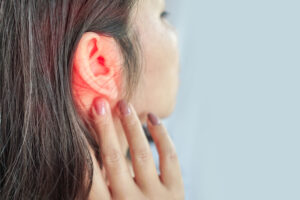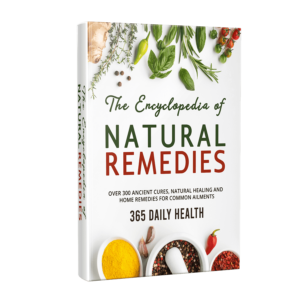Introduction

Home remedies for earache can provide immediate, cost-effective relief. Warm compresses, garlic, ginger, hydrogen peroxide, or even chewing gum can aid in alleviating pain. Always know when to consult a doctor.
Earache, medically referred to as otalgia, is a common health condition that can occur due to a variety of causes such as infection, changes in pressure, excess buildup of wax, or even referred pain from other areas of the face or neck. Symptoms typically include a sharp, dull, or burning sensation in the ear, which can be continuous or intermittent. Despite the discomfort, it’s important to note that many earaches, especially those caused by environmental factors or minor infections, can often be treated effectively at home. Home remedies not only provide a natural and cost-effective solution, but they also allow for immediate relief, especially when professional medical assistance is not readily accessible. Nevertheless, it’s crucial to understand when it is appropriate to employ home remedies and when medical consultation is necessary.
Warm Compresses
Explanation of the method
A warm compress can be easily created by soaking a clean washcloth in warm water, wringing out the excess, and then placing it on the affected ear for about 10 to 15 minutes. Repeat this several times throughout the day to alleviate the discomfort associated with the earache.
How and why it works
The warmth from the compress helps to increase blood circulation in the affected area, which can speed up the healing process. Additionally, the heat can also help to loosen any earwax or fluid build-up, reducing pressure and pain in the ear. This non-invasive, easy-to-do home remedy can be highly beneficial for immediate and temporary pain relief. However, it’s important to bear in mind that this method primarily addresses the symptoms and may not necessarily treat the underlying cause of the earache. A medical consultation should be sought if the pain persists or worsens over time.
This article belongs to pineyriverhomestead. Published 9-19-23
Garlic for Earache
Explanation of the method
Garlic has been used for centuries in various cultures for its medicinal properties, including pain relief for earaches. For this remedy, take a clove of garlic and heat it slightly in a pan with a small amount of olive or sesame oil. Allow it to cool down to a safe, warm temperature and extract a few drops of the oil. Lie on your side with the affected ear facing upwards and put a couple of drops into the ear canal. Remain in the same position for about 10 minutes to allow the oil to penetrate deeply. Repeat this process twice a day.
How and why it works
Garlic contains allicin, a compound with natural antibiotic and anti-inflammatory properties, which can help to alleviate pain and fight off potential infections. The warmth of the oil can also soothe discomfort and help to dislodge any earwax or fluid buildup. Like the warm compress method, this home remedy can provide immediate relief but should not replace medical treatment if symptoms persist or worsen.
Ginger for Earache
Explanation of the method
Another effective home remedy for earaches is ginger. To use ginger for earache relief, you can make a homemade ginger juice. Start by taking a fresh piece of ginger and peeling the outer layer. Grate the peeled ginger, then squeeze out the juice. Next, warm this juice slightly to a safe, warm temperature. Once warmed, use a dropper to put a few drops of the ginger juice into the affected ear. Repeat this process twice a day.
How and why it works
Ginger is known for its potent anti-inflammatory and analgesic properties, which can help to alleviate pain and swelling in the ear. Furthermore, ginger is also a natural antibiotic that can fight off potential infections causing the earache. However, like other home remedies, this should not replace medical treatment if the earache persists or worsens over time.
Hydrogen Peroxide for earache
Explanation of the method
Hydrogen Peroxide is yet another effective home remedy for relieving earache in ear canal. Begin with a 3% hydrogen peroxide solution, as higher concentrations can potentially harm your skin and ear canal. With the affected ear facing upwards, use a dropper to put a few drops of the hydrogen peroxide into the ear canal. Allow it to fizz and bubble, which might cause a mild stinging sensation. After 10 minutes, tilt your head to the other side to let the mixture, along with any dislodged debris, drain out. Repeat this process twice a day.
How and why it works
Hydrogen peroxide works as a natural effervescent that can cleanse the ear and remove any trapped fluid or earwax. This helps to alleviate symptoms of earache and restore the ear to its normal function. It also possesses antimicrobial properties, helping to clear any potential infections. However, as with all home remedies, this should not replace medical treatment if symptoms persist or worsen.
Chewing Gum
Explanation of the method
Chewing gum is a simple yet surprisingly effective remedy for earache, especially for the pain caused by changes in altitude such as during takeoff or landing in an airplane. To use this method, simply chew a piece of sugarless gum. If the discomfort is due to altitude change, begin chewing the gum around 30 minutes before the change is expected.
How and why it works
The act of chewing gum stimulates the production of saliva and encourages frequent swallowing, which can help to regulate the pressure in your ears. This can be particularly beneficial in relieving earache caused by changes in altitude or pressure. The continuous movement of the jaw while chewing also aids in reducing tension in the surrounding muscles, providing further pain relief. Despite its benefits, remember that this method is generally effective in specific cases and might not be a cure-all for all types of earaches. If symptoms persist or worsen, professional medical treatment is advised.
Essential Oils for Earache
Explanation of the method
Essential oils, derived from various plants, have long been recognized for their therapeutic benefits, including their potential to alleviate earaches. Certain essential oils such as lavender, tea tree, and basil have properties known to reduce inflammation and relieve pain. To utilize this remedy, mix a few drops of the chosen essential oil with a carrier oil (like olive or coconut oil) to dilute it. Apply this mixture around the external part of the afflicted ear, gently massaging it in. Never put essential oils directly inside the ear.
How and why it works
These essential oils have anti-inflammatory and analgesic properties that help soothe the pain. Additionally, some oils like tea tree oil have antibacterial characteristics that can assist in fighting off infections that might be causing the earache. However, like any other home remedy, this shouldn’t replace medical treatment if symptoms persist or intensify. Always consult a professional healthcare provider in such instances.
Precautions with Home Remedies
Home remedies can provide relief for minor ailments, but it’s crucial to use them judiciously. Always verify the source of the remedy and ensure it comes from a trustworthy source. Remember, these remedies should not take the place of professional medical advice, especially in serious situations. Also, make sure to use the correct method and dose, especially when using essential oils or other potent substances. Allergies or adverse reactions are a possibility, so pay attention to any unusual symptoms after using a remedy.
When to Use Home Remedies
Home remedies can be effective for minor, non-life-threatening conditions or to supplement prescribed treatment. They can often provide relief for symptoms like mild earache, coughs, colds, and minor skin irritations among others. They can also be used as preventive measures. However, they’re usually most effective when used early in the onset of symptoms.
When to Consult a Doctor
Despite the potential benefits of home remedies, there are situations when it’s essential to consult a healthcare provider. These include severe pain, symptoms persisting or worsening after a few days, fever, difficulty breathing, or any condition causing significant discomfort or distress. Always contact a healthcare professional if you’re unsure or in case of serious symptoms.
Conclusion
Home remedies can provide relief for minor ailments. However, it’s essential to verify the source and method of application, pay attention to any unusual symptoms, and consult a healthcare provider when in doubt. With proper use, home remedies may be a great addition to conventional treatments.
Note: This content is for informational purposes only and should not be considered medical advice. As always, consult with your healthcare provider.
For more home remedy articles click here.

